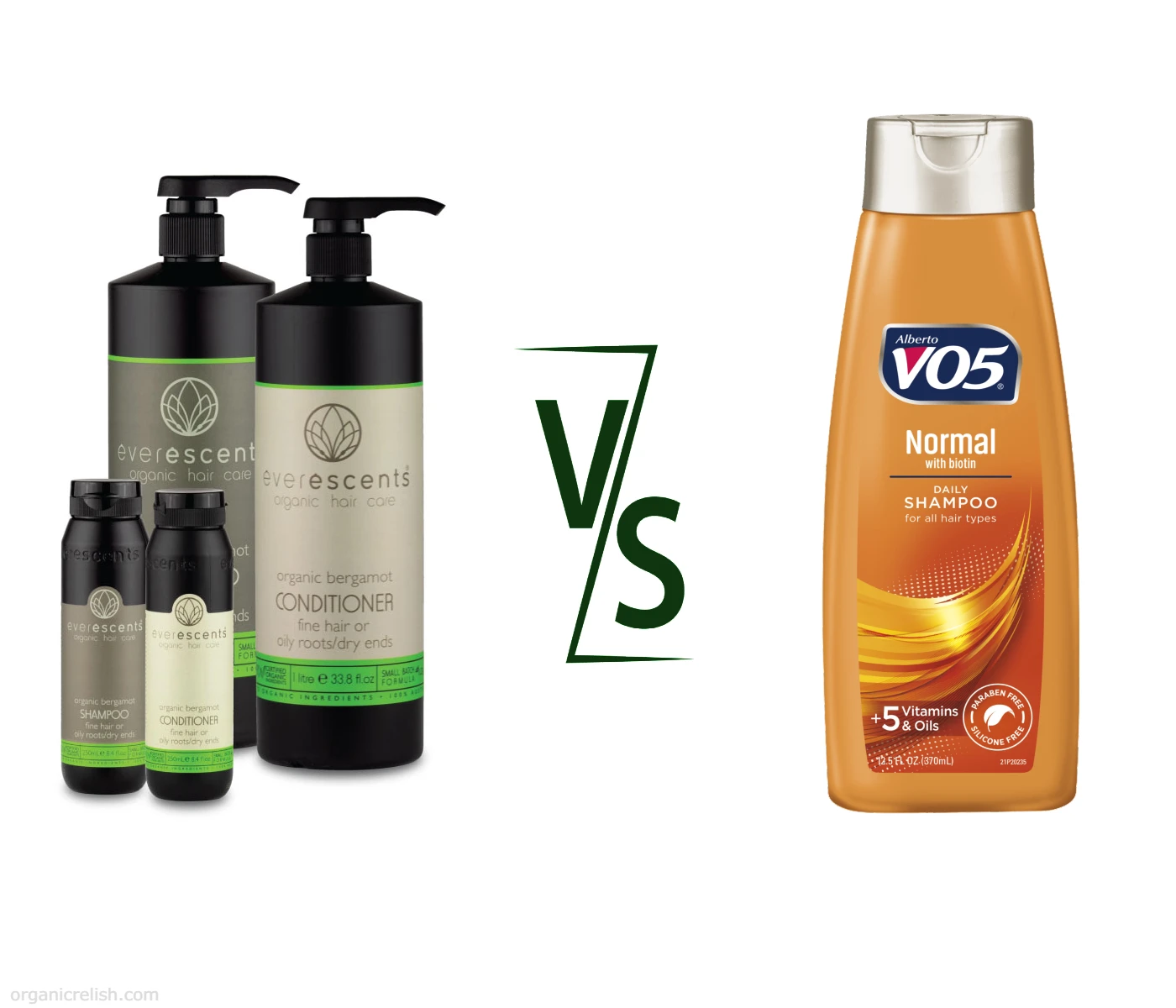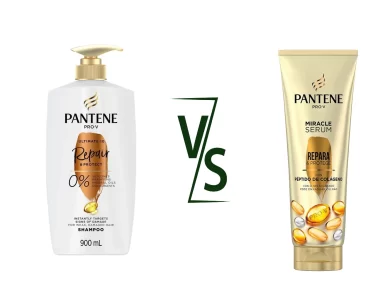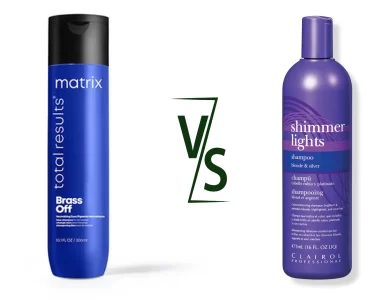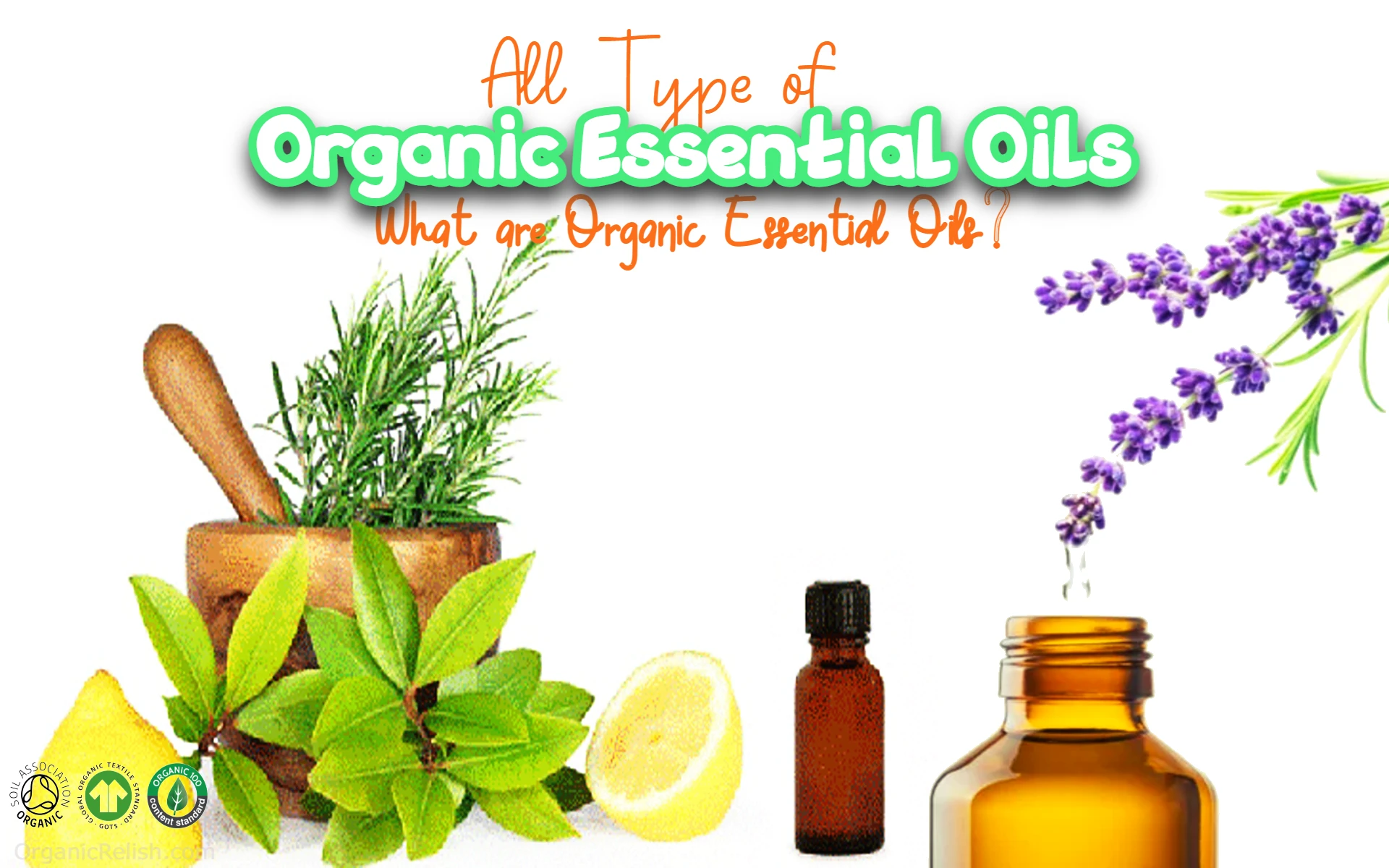Organic Shampoo vs Regular Shampoo
What is the Differences Between Regular Shampoo and Organic Shampoo?

The main differences between organic shampoo and regular shampoo lie in their ingredients and overall approach. Organic shampoos feature natural, plant-derived cleansers and essential oils that gently cleanse without stripping natural oils, promoting long-term hair health. In contrast, regular shampoos often contain synthetic compounds like sulfates and artificial fragrances, prioritizing immediate cleansing results. This distinction extends to their environmental impact, with organic options embracing sustainable practices and biodegradability. When choosing between the two, individuals should consider their hair type, ethical values, and desired hair care outcomes.
| Aspect | Organic Shampoo | Regular Shampoo |
|---|---|---|
| Ingredients | Plant-based cleansers, natural extracts, essential oils | Synthetic surfactants, parabens, artificial fragrances |
| Environmental Impact | Sustainable sourcing, biodegradable, eco-friendly packaging | Potential water pollution, resource-intensive production |
| Hair Benefits | Nourishing, strengthening, promoting hair health | Immediate cleansing, temporary shine, potential hair damage |
| Hair Types | Customized formulations for different hair types | Often a one-size-fits-all approach |
| Long-Term Impact | Potential for healthier scalp, reduced irritation | Risk of cumulative damage due to synthetic chemicals |
| Scalp Health | Ingredients that soothe, natural scents, aromatherapy | Potential for scalp irritation due to synthetic chemicals |
| Ethical Considerations | Often cruelty-free, organic certifications | Varies by brand – some might prioritize ethical practices |
| Hair Dyes/Treatments | Gentle on colored/treated hair, preserves vibrancy | Potential to strip hair color and damage treatments more quickly |
| Sensory Experience | Natural scents, therapeutic effects, mindful ritual | May contain artificial fragrances, different lathering experience |
| Self-Care Approach | Emphasis on holistic well-being, alignment with nature | Focuses more on immediate cleansing results |
| Hair Trends | Can adapt to evolving trends, new formulations | May evolve over time, but might not emphasize natural ingredients |
| Overall Outcome | Balanced, sustainable, and gentle hair care | Cleansing efficiency and immediate results |
Differences Between Organic Shampoo and Regular Shampoo
Ingredients: A Natural Embrace vs. Chemical Concoctions
The most striking disparity between organic and regular shampoos lies in their ingredients. Organic shampoos boast an array of naturally-derived components, carefully sourced to provide a gentler cleansing experience. These formulations often feature botanical extracts, essential oils, and plant-based cleansers that work harmoniously to cleanse without stripping away the hair’s natural oils. In contrast, regular shampoos frequently contain a mix of synthetic compounds, including sulfates, parabens, and artificial fragrances. These chemicals can sometimes be harsh on the scalp and hair, potentially causing irritation, dryness, or even color fading for those with dyed hair.
| Ingredients | Organic Shampoo | Regular Shampoo |
|---|---|---|
| Cleansing Agents | Plant-based cleansers like coconut or aloe vera derivatives. | Synthetic surfactants, often sulfates. |
| Preservatives | Natural alternatives like rosemary extract or citric acid. | Parabens and other synthetic preservatives. |
| Fragrances | Essential oils and natural scents extracted from plants. | Artificial fragrances and synthetic perfumes. |
Environmental Impact: A Green Footprint vs. Chemical Runoff
Choosing between organic and regular shampoos isn’t just about your hair; it’s also about the planet. Organic shampoos tend to be more environmentally friendly, as they prioritize sustainable sourcing, biodegradability, and reducing chemical runoff. The ingredients in organic shampoos are typically cultivated without synthetic pesticides or genetically modified organisms (GMOs). This mindful approach extends to the packaging, where eco-conscious brands often opt for recyclable or biodegradable materials.
On the other hand, many conventional shampoos leave a larger environmental footprint. The production and disposal of these shampoos can contribute to water pollution due to the presence of synthetic chemicals. Additionally, the manufacturing processes of regular shampoos might involve resource-intensive procedures that amplify their ecological impact.
Hair Benefits: Nourishing Tenderness vs. Instant Gratification
When it comes to the actual effect on your hair, the choice between organic and regular shampoos can impact more than just cleanliness. Organic shampoos are often formulated with nourishing ingredients that aim to improve hair health over time. These may include botanical extracts rich in vitamins, minerals, and antioxidants that promote shine, strength, and overall vitality. With consistent use, organic shampoos can lead to hair that feels softer, looks healthier, and is less prone to breakage.
Regular shampoos, while efficient in cleansing, might rely on chemical compounds that offer immediate but temporary results. They may contain silicones that provide an instant smoothness and shine by coating the hair shaft, but these effects can diminish once the product is washed out. Moreover, some of the chemical ingredients in regular shampoos could potentially strip the hair of its natural oils, leading to dryness and the need for additional hair care products to restore moisture.
Hair Types: Customized Care vs. One Formula Fits All
Another remarkable distinction between organic and regular shampoos is the approach to catering to diverse hair types. Organic shampoos often embrace a more holistic approach, offering various formulations designed for specific hair needs. Whether you have fine, oily hair or thick, curly locks, organic options often come tailored to your unique hair type. This customization allows for a more personalized hair care experience, potentially leading to better results and hair that feels like it’s receiving specialized attention.
Conversely, regular shampoos frequently employ a “one size fits all” strategy. While some may claim to cater to different hair types, they often rely on a singular formula that might not effectively address the specific needs of various hair textures and conditions. This standardized approach could lead to suboptimal outcomes for individuals with distinct hair requirements.
Long-Term Impact: Cultivating Well-Being vs. Immediate Gratification
When choosing between organic and regular shampoos, it’s important to consider the long-term impact on your hair and overall well-being. Organic shampoos, with their emphasis on natural ingredients, may contribute to a healthier scalp and hair in the long run. By avoiding potentially harmful chemicals, you could reduce the risk of irritation, allergies, and other scalp issues.
Regular shampoos, while providing quick cleansing results, might not offer the same level of care and attention to hair health. The chemicals they contain could lead to cumulative damage over time, potentially resulting in dryness, frizz, or brittleness.
The Ritual of Application: A Sensory Experience
The act of shampooing goes beyond functionality – it’s a sensory experience that can set the tone for your day. Organic shampoos often elevate this experience with their natural scents and textures. As you massage an organic shampoo into your scalp, you’re greeted by the calming aroma of lavender, the invigorating scent of peppermint, or the delicate fragrance of rosemary. These essential oils not only contribute to the overall sensory pleasure but can also have therapeutic effects, promoting relaxation, stress relief, and a sense of well-being.
Regular shampoos, while they might offer a pleasant scent, might rely on artificial fragrances that lack the depth and nuance of natural essential oils. Additionally, the lathering experience with synthetic shampoos might feel different due to the presence of sulfates that create a rich foam. While this lather can give the impression of a thorough cleanse, it’s important to note that more foam doesn’t necessarily equate to cleaner hair.
The Sustainability Spectrum: Supporting Ethical Practices
The journey from the bottle to your hair also involves considering the ethical practices behind the products you choose. Organic shampoos often align with sustainable and ethical values. These products are often cruelty-free, not tested on animals, and may carry certifications from organizations that promote organic and environmentally conscious practices.
Conventional shampoos, depending on the brand, might have varying degrees of commitment to ethical considerations. Some mainstream brands have made efforts to reduce their environmental impact and move towards cruelty-free practices, while others might not prioritize these aspects to the same extent.
Hair Care as Self-Care: A Holistic Approach
Organic shampoos often encompass a holistic approach to hair care that resonates with the broader concept of self-care. The emphasis on natural ingredients, sustainable practices, and a mindful cleansing ritual can contribute to a sense of well-being that transcends mere hair health. Choosing an organic option can align with a lifestyle that values simplicity, authenticity, and connection to nature.
Regular shampoos, while focused on cleansing efficiency, might not necessarily offer the same level of emotional satisfaction or alignment with holistic well-being. However, some individuals might find comfort in the familiarity and convenience of conventional products.
Hair Dyes and Treatments: A Colorful Perspective
If you’re someone who loves to experiment with hair colors or has undergone chemical treatments, your choice of shampoo becomes even more significant. Organic shampoos, with their emphasis on gentle ingredients, might be preferable for those with colored or treated hair. The absence of harsh sulfates and synthetic chemicals can help preserve your hair color and the integrity of treatments, leading to longer-lasting vibrancy and reduced damage.
Regular shampoos, especially those containing sulfates, might strip away hair color and treatments more rapidly, causing fading and potential damage. For individuals who invest time and effort in achieving and maintaining specific hair colors or styles, organic shampoos could be a valuable tool in preserving their aesthetic choices.
As the beauty and wellness industries continue to evolve, new insights, trends, and innovations emerge. Organic and regular shampoos are no exception to this evolution. Brands are continuously working to improve formulations, sustainability practices, and ethical considerations. It’s worth keeping an eye on the ever-changing landscape to discover new options that align with your values and desires.
In this dynamic context, your choice between organic and regular shampoos might not be set in stone. Your hair care journey can be a fluid exploration, allowing you to adapt to new findings, experiences, and preferences. Don’t hesitate to explore both sides of the spectrum and stay open to trying different products as the beauty industry continues to unfold.
In the end, the choice between organic and regular shampoos boils down to your personal preferences, hair type, and values. If you’re seeking a more natural, environmentally conscious option that focuses on long-term hair health, organic shampoos could be your go-to choice. On the other hand, if you’re looking for immediate cleansing results and don’t mind the potential presence of synthetic ingredients, regular shampoos might suit your needs.
Remember, your hair care journey is unique, and there’s no one-size-fits-all solution. Consider experimenting with different products and paying attention to how your hair responds. Whether you opt for the nourishing embrace of organic ingredients or the efficiency of conventional formulas, the key is to find a shampoo that aligns with your hair goals and leaves you feeling confident and radiant.
FAQs
The primary distinction lies in their ingredients. Organic shampoos use natural, plant-based cleansers and essential oils, while regular shampoos often contain synthetic compounds like sulfates and artificial fragrances.
Yes, organic shampoos are often more environmentally friendly. They prioritize sustainable sourcing, biodegradable formulations, and reduced chemical runoff compared to some conventional shampoos.
Organic shampoos tend to offer long-term hair health benefits. Their natural ingredients, such as botanical extracts, can strengthen, nourish, and promote shine over time. Regular shampoos might provide immediate results but may lack the same depth of care.
Yes, organic shampoos often offer customized formulations for various hair types, catering to specific needs such as oily, dry, or curly hair. Regular shampoos might have a one-size-fits-all approach.
While regular shampoos can effectively cleanse, some may contain harsh chemicals that strip natural oils and potentially lead to dryness, breakage, or color fading over time.
Organic shampoos often contain ingredients like tea tree oil, lavender, and chamomile that can soothe the scalp and control issues like dandruff. Regular shampoos might include synthetic fragrances and detergents that could potentially cause scalp irritation.
Organic shampoos tend to align with ethical considerations. They are often cruelty-free, use responsibly sourced ingredients, and might carry certifications promoting organic and sustainable practices.
Yes, organic shampoos are generally gentle on colored hair. They lack harsh sulfates and chemicals that can strip hair color, helping to preserve vibrancy and the integrity of color treatments.
Yes, some brands offer hybrid formulas that blend natural and synthetic ingredients to provide effective cleansing while maintaining an emphasis on hair health.
Your choice depends on factors like your hair type, environmental concerns, desired outcomes, and personal values. Consider your hair’s unique needs and what aligns best with your lifestyle and preferences.
Read More:
Contents
- Differences Between Organic Shampoo and Regular Shampoo
- Ingredients: A Natural Embrace vs. Chemical Concoctions
- Environmental Impact: A Green Footprint vs. Chemical Runoff
- Hair Benefits: Nourishing Tenderness vs. Instant Gratification
- Hair Types: Customized Care vs. One Formula Fits All
- Long-Term Impact: Cultivating Well-Being vs. Immediate Gratification
- The Ritual of Application: A Sensory Experience
- The Sustainability Spectrum: Supporting Ethical Practices
- Hair Care as Self-Care: A Holistic Approach
- Hair Dyes and Treatments: A Colorful Perspective
- Evolving Trends: Navigating the Dynamic Landscape
- Final Verdict: Navigating Your Hair Care Journey
- FAQs



